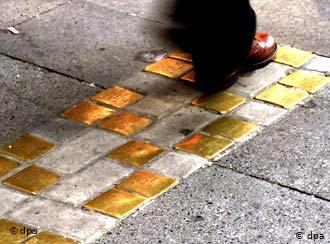Pale skin, blond hair, blue eyes. Here is the pure Hitlerian breed. The Aryans. The others? Rubbish. Especially if they are Jews, who are guilty of all the evils of the world and who must expiate. On January 27th, people around the world are remembering it, Germans included. It is always worth to stress these things plainly. Especially, to prevent the following lines from causing misunderstandings. From the title of the panels grafted onto the city sidewalks, by the German artist Günter Demnig, to stimulate the Memory, the “Stumbling Stones” committee gets its name. Chaired by the Senator Liliana Segre, it brings together these facts and feelings: resistance, deportations, anti-fascism. Everything to be memorized and recorded. All well beyond that fateful date. But, Hitler was not original; excepting his own barbaric and atrocious ways.
Liliana Segre, memory and history
We might consider anti-Semitism as a sort of perpetual history. Lenin and Stalin’s deportations into the Gulag, even though not a plain genocide, have been otherwise ferocious: a total of about 15 million victims, followed by six million who died from famine. A Red Remembrance, then? But by taking into account that it shouldn’t be is a competition, because it would be an affair of numbers between wretches that wouldn’t be worth to be treated at all. Senator Segre is a tireless battler, but realistic as well: future generations, as far as Shoah is concerned, would find only one line in history books. But it is sad and paradoxical that, over the centuries, there have been no need to remember it.
That’s because somehow something Shoah-like has often reappeared, tout court. It seems that it was this fear of returns that pushed the Jewish writer, Dino Segre, to use the pseudonym of Pitigrilli. Of course, it is important to remember instead of neglecting to do so. And understandably Israel state made the United Nations General Assembly designate International Holocaust Remembrance Day with the 60/7 Resolution of November 2005, which is on January 27th.
Memory makes free
In 1945, on that day and in that month, the Red Army liberated Auschwitz-Birkenau concentration camps. Certainly, in the very delicate and sacred atmosphere of Memory, there is a delicate problem which is bound to keep open. We refer to the relationship between Jewish people, wherever they live in the world or in their state, between an ethnic group that Hitler intended to massacre entirely and barbarously and the international politics run by Israeli state to which those people feel to belong to. It may be that sometimes both sentiments don’t coincide. But the day of Holocaust Remembrance remains an absolute value, anyway, a sort of metastory against human evil. And this also because, as the title of Liliana Segre and Enrico Mentana’s book says, “Memory makes you free”.








